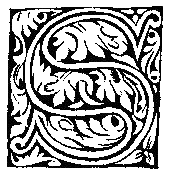Enderal:Encyclopedia Arcana - Magic, Part IV
- NPC: Belethor Firestorm in Frostcliff Tavern
- NPC: Brenol Chopper in Ark, Meat Market
- NPC: Librarian Marius in Ark, Library
- Ark, Dal Geyss' Estate
- Ark, Golden Sickle, Guildhouse
- Ark, Perpetuumtheater
- Boreo's Book Blessing
- Castle Dal'Galar, Library
- Castle Golden Ford, Keep
- Dal'Valstaag Ruins, Vault
- Honeybrewery at the Upper Farm
- Old Rashêngrad, Lower Area
- Paladinfestung, Räume
- Paladinfestung, Speisesaal
- Residential Barrack
- Sun Temple - Chronicum
- Thalgard, Quarters
- Yero's Cellar
Magic, Part IV
Even in the civilized world the stance on magic varies greatly between countries. This is primarily due to two causes: The varying ideals of the gods themselves, and the native cultures before their lands were conquered by the Light-Born.
In Enderal, every mage has to report their talent to the Holy Order upon discovery and undergo the "Journey to the Water". Refusing to do so renders one a wild mage in the eyes of the law, and therefore a Pathless criminal. After completing the Journey to the Water, the mage's name will be added to a register and their status elevated to arcanist. Skilled arcanists - especially those who take on the novitiate and join the Holy Order - are highly regarded, although they often face distrust and fear as well. According to the 101 Holy Verses, magical talent is not in opposition to the Holy Path assigned to an individual. If, for example, a farmer discovers magical talent within himself, he is still expected to continue on the Manufacturer's Path upon completion of the Journey to the Water. Magical talent is thus to be understood as a challenge which must be conquered.
In Nehrim and Arazeal, the approach to magic is very similar to the Endralean way - at least in the civilized parts. Qyra and Kilé have fewer regulations surrounding magic. There, the magically gifted can join so-called mage circles, consortia of arcanists offering their services as mercenaries and researchers. These circles represent very progress-oriented and pragmatic ideals, which is why many notable arcanists and researchers of Vyn originate from them. Although a free-spirited individual may find these thoughts appealing, it is an open secret that certain circles, especially the "Sbintoza", also offer their services for more unscrupulous research purposes. For further information, the student of magic is recommended to read the work "The Sbintoza - Facts and Speculation" from the same author.
The lands of the wild handle magic - as one would expect - in a primitive and almost pitiful manner. They attribute their magical talents to nonexistent idols or the voices of the dead and practice shamanistic rituals. For this reason, they will not be elaborated on further in this tome.
(Librarian's note: Since the death of Erodan and the takeover of Nehrim by Chancellor Barateon, only the members of Barateon's guard are permitted to use magic. Wild mages, especially Aeterna, are pursued and punished with draconian brutality. The root of this persecution is, presumably, the chancellor's fear that his power might be challenged.)
